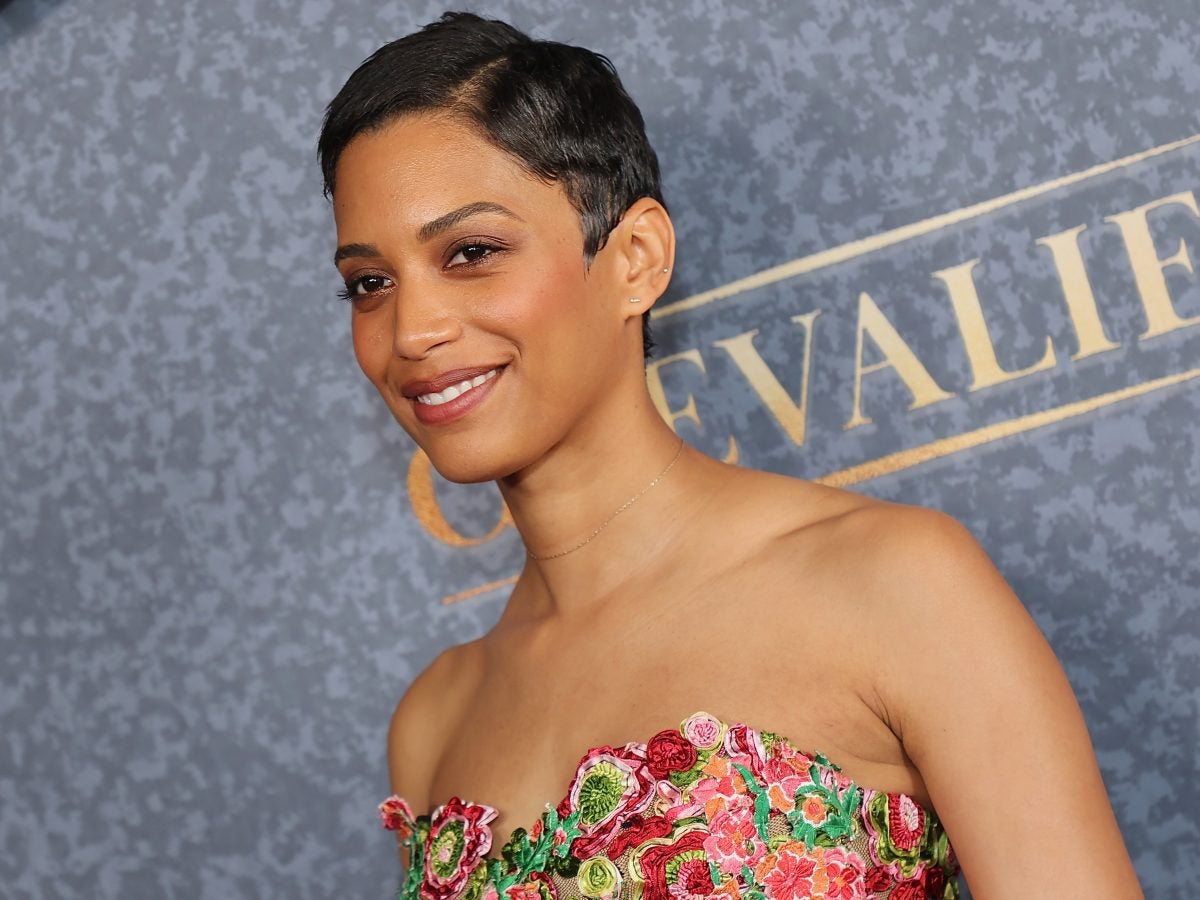
Joseph Bologne, Chevalier de Saint-Georges is a near-forgotten figure from late 1700’s France, despite being not only an accomplished violinist and composer but a French Revolutionary and soldier of the Haitian slave rebellion. Though his name may not ring immediate bells with all who hear it, writer Stefani Robinson has helped ensure that his legacy goes unforgotten to history with her first-ever feature film, Chevalier.
Starring Kelvin Harrison, Jr. [The Photograph, Monster, It Comes At Night] Chevalier follows the sweeping story of Bologne, a child born in Guadeloupe to a wealthy married French settler and an enslaved Senegalese woman. Taken to France at age seven by his father for proper schooling, he excelled at everything from languages to fencing, to horseback riding and, of course, classical violin, eventually climbing the social ladder of French high society to be declared a Chevalier [a knight of sorts] in Marie Antionette’s royal court.
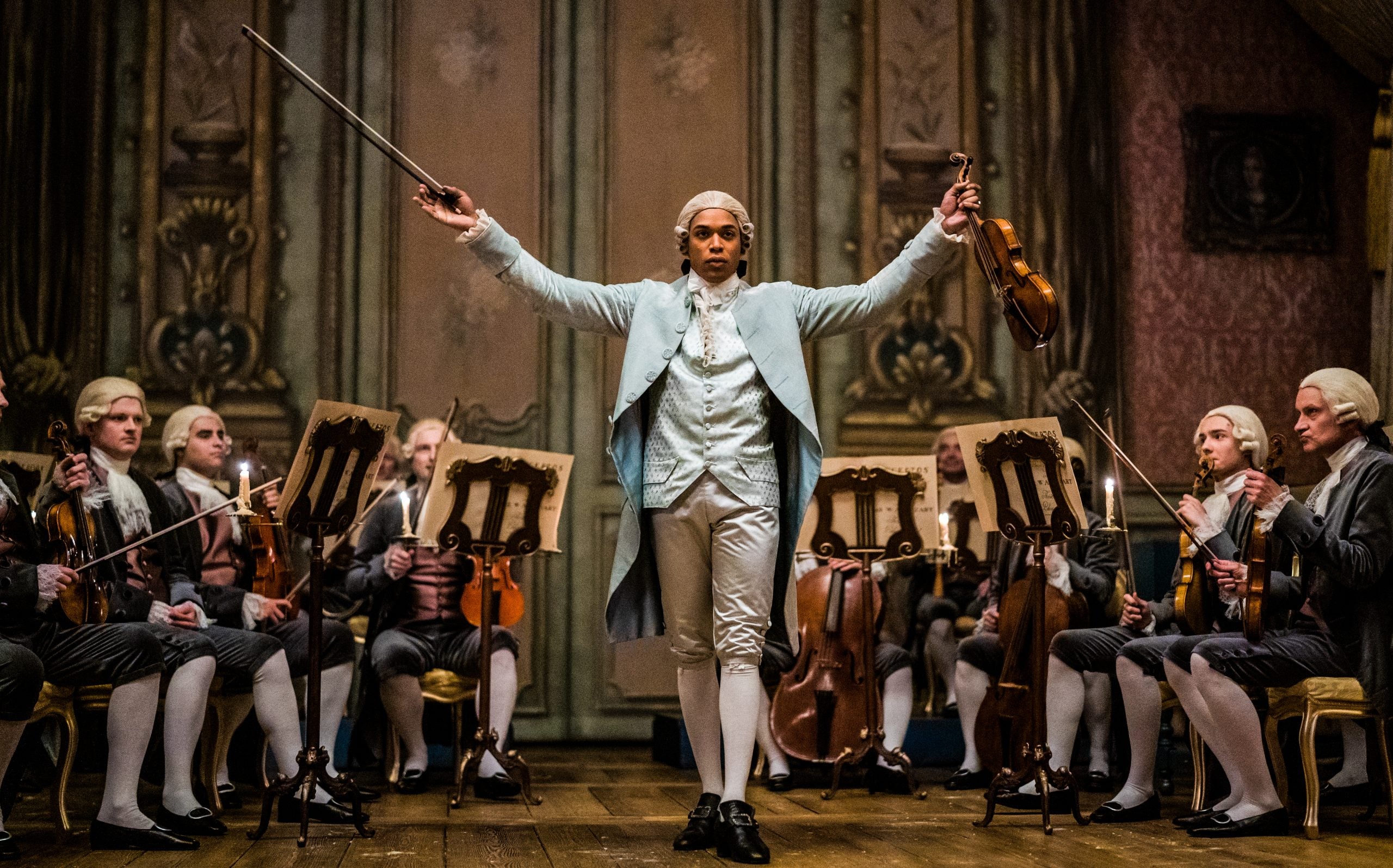
ESSENCE caught up with Robinson, a few months removed from the finale of her hit show Atlanta and her latest Emmy nomination for her work as writer and EP of FX’s vampire comedy What We Do In The Shadows, to talk about the challenges and joys of tackling her first-ever big screen feature film.
ESSENCE: Fans are already familiar with your voice through your work in television on things like Atlanta and What We Do in the Shadows, but this is your first foray into film. Why did you choose Joseph Bologne, Chevalier de Saint-Georges as the subject matter for your first film script?
Robinson: Everything about his life was the thing that made me want to make this a movie. When I was in high school, my mom had given me a book that mentioned him, and it was sort of like a highlight reel of everything that he had done. But that in of itself was like, “oh my gosh, this guy’s life is a movie.”
He was a master fencer. He was obviously a master violinist and composer, and he was Marie Antoinette’s tutor, he had lived at Versailles, he was a master horseback rider, and knew all these languages. And he went on to become a soldier and fight in the French Revolution and traveled to England and to Haiti to help with the slave rebellion there. It felt like four movies rolled up into one. And I just couldn’t believe that this was one person’s life.
I think more so I couldn’t believe that I had not heard about him at all. No one in my life had heard about him either.
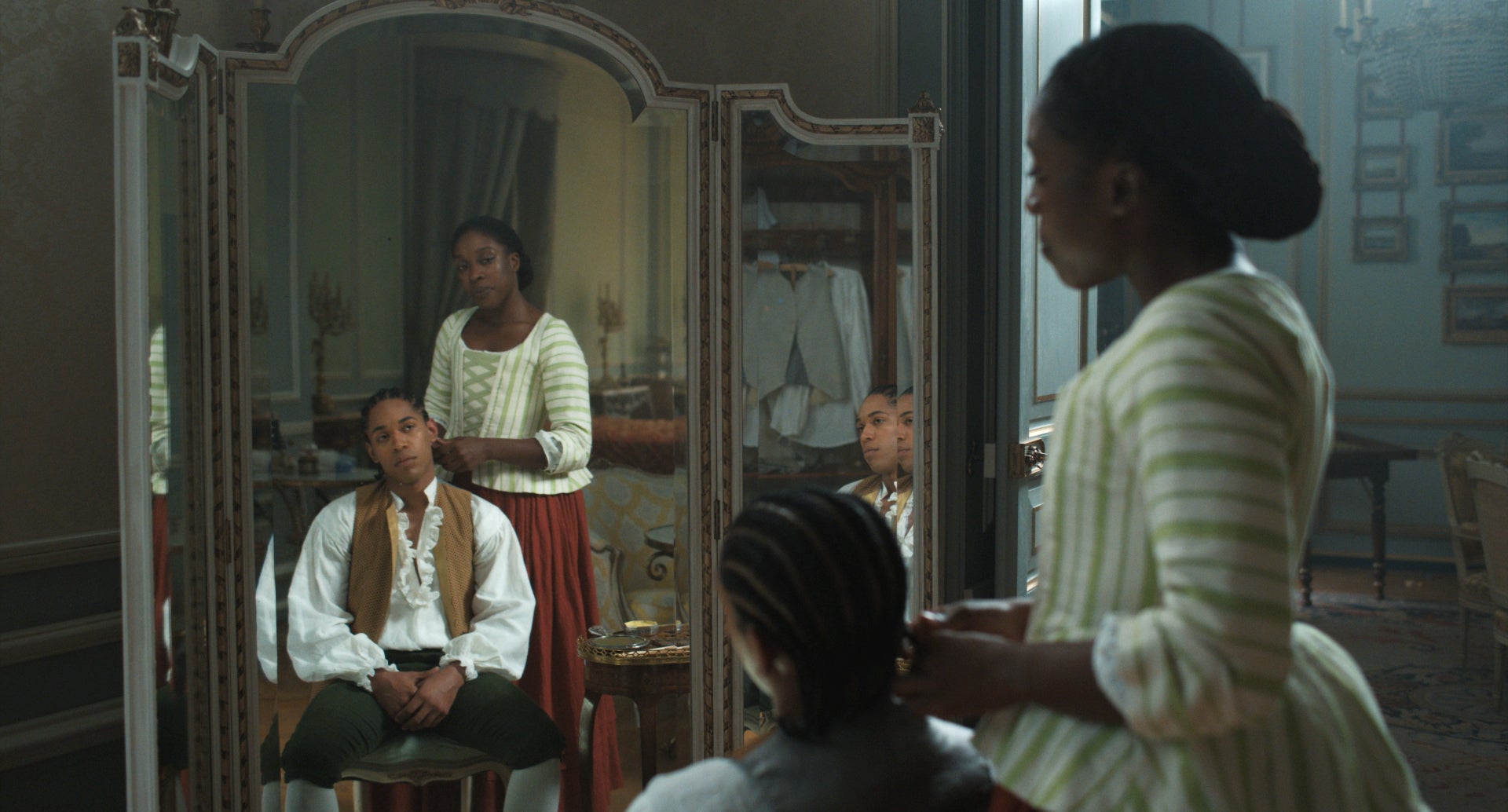
That makes sense. Bologne isn’t completely forgotten to history, but his amazing story seems to be largely skipped over in historical texts.
Overlooked, ignored, marginalized, for sure, obviously. But yeah, he exists and his work exists and it’s there and it’s accessible. It’s not as accessible as a Mozart or someone, but that also is the thing that I think made me more angry – knowing that the information was there, but no one seemed to care.
Albeit that Bologne’s story is a part of French history, there’s currently a concerted effort in the United States to suppress and erase prominent figures and moments in Black history from the historical narrative. How do you feel your film fits into the discourse of keeping the legacies of figures of color alive, especially when there is so much vested interest in making sure they are forgotten by future generations?
I think it’s essential. It’s crucial. I mean, even more so now and the timing of this. I think couldn’t be more spooky that we are living in a time where people are making active efforts to hide the truth about our country’s history; to diminish the contributions and the lives of so many people who have lived in this country. I think it’s just disgusting, and I think it’s gross, and it’s really disheartening that it’s still happening.
This is something that clearly happened with Joseph the Chevalier, in that there were active efforts to try to marginalize him or to not celebrate his work To know that this is happening again in real-time? I just think that it’s unacceptable. So I’m incredibly excited that this movie’s coming out within that context.
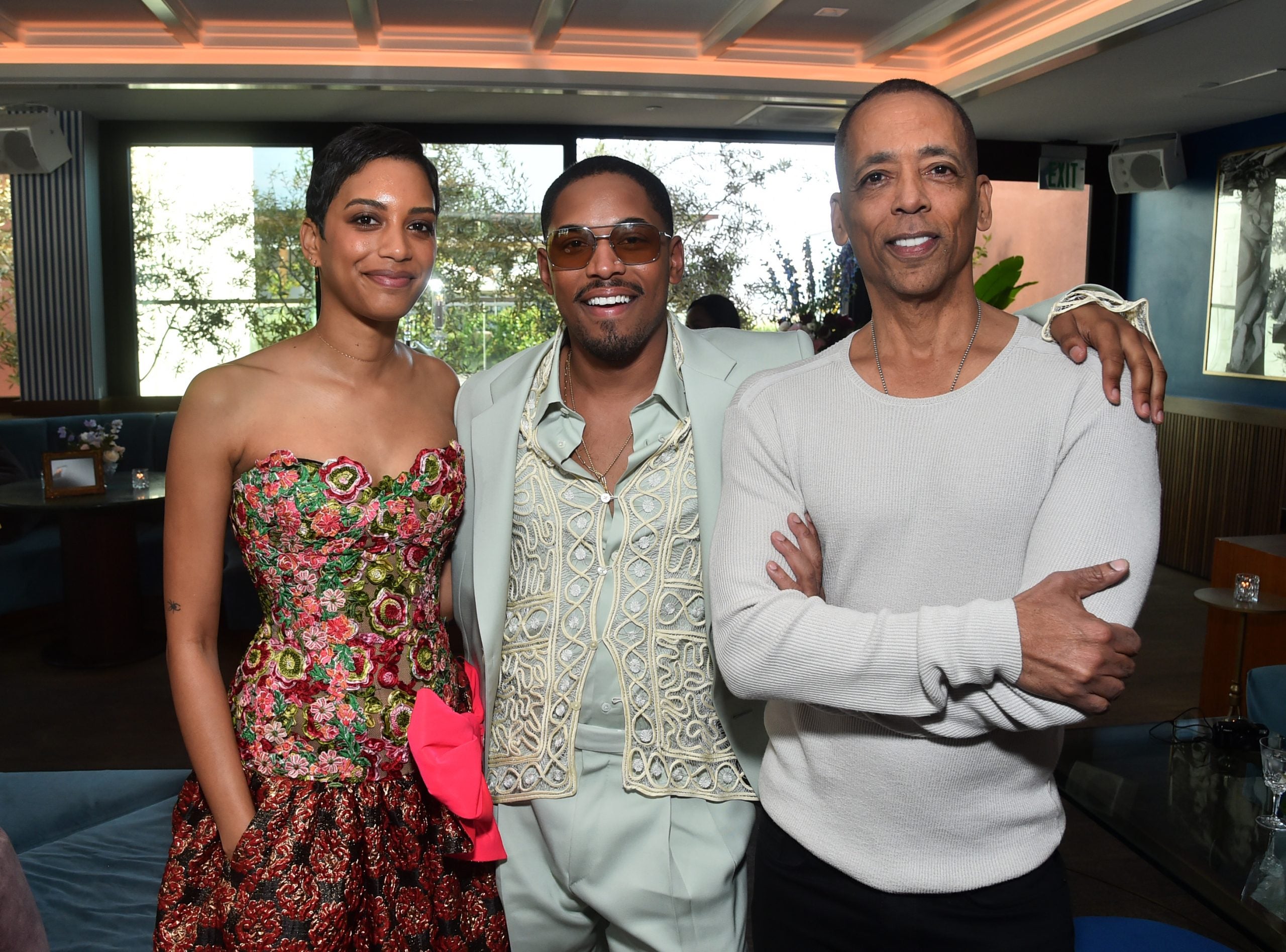
Now, you’re clearly very used to seeing your pen come to life on set via your work on television, but what was it like seeing your work go from the page to the screen on a fully-fledged film set for the first time?
It was hard and it was exciting, and it was different than anything I’ve ever done before. The scope of this movie was so different than anything I have done. It was a period piece set in the 18th century. We shot in Europe. We shot in the Czech Republic. We were shooting in some of the most incredible locations I’ve ever seen. There were tons of extras and the costuming and the production design was just completely amazing and different and intentionally curated and crafted in a way I’ve never seen before. Again, that scale of scope was just so different.
And then, obviously, there was a lot of work in bringing this to life – especially for Kelvin [Harrison, Jr.] who does play Joseph. He had to learn how to fence, he had to learn how to play the violin. So there was just a lot of blood, sweat, and tears that went into making this movie from so many different people, and it really was a labor of love. It was sort of just an incredibly trippy thing to see come to life.
It truly shows! The film’s opening scene is such a standout that I think will hook audiences instantly, with Bologne challenging Mozart to an impromptu battle at one of his concerts.
The beginning scene was my favorite to write. I love that scene so much. It was funny because when I wrote that, I was like, I don’t know how they’re going to pull this off, but Stephen [Williams, the film’s director] and Kelvin and all of the actors in that scene do such an amazing job and are so game, and it was a really tricky thing to do. It took both of those actors, both Joseph and the Mozart character, to learn those pieces and those original compositions as well that are in there. So when you see them violin-ing in the actual scene, that’s them doing it. And I think it’s just such a great scene. I have so much fun watching it. I had so much fun when they were shooting it. I loved it.
Granted, Bologne’s life was unsurprisingly marked by tragedy as well. Was there any one scene that was particularly difficult for you to write?
Without spoiling it, there’s a scene that’s really tough and it was hard to execute as well because it was such an emotional scene. Joseph learns a piece of information that’s relating to someone he’s been having a romantic relationship with, and it’s a really heartbreaking scene.It was tough to write just because of the nature of what it was and what happens is a pretty traumatic, dramatic thing.
I think it was also tough to just calibrate the right way to give space for it to breathe and to make sure it was, I think, placed in the script at an appropriate time so that you felt the gravity of the situation, and bringing that to life was a heavy day on set. But it was such a pivotal part of the movie.
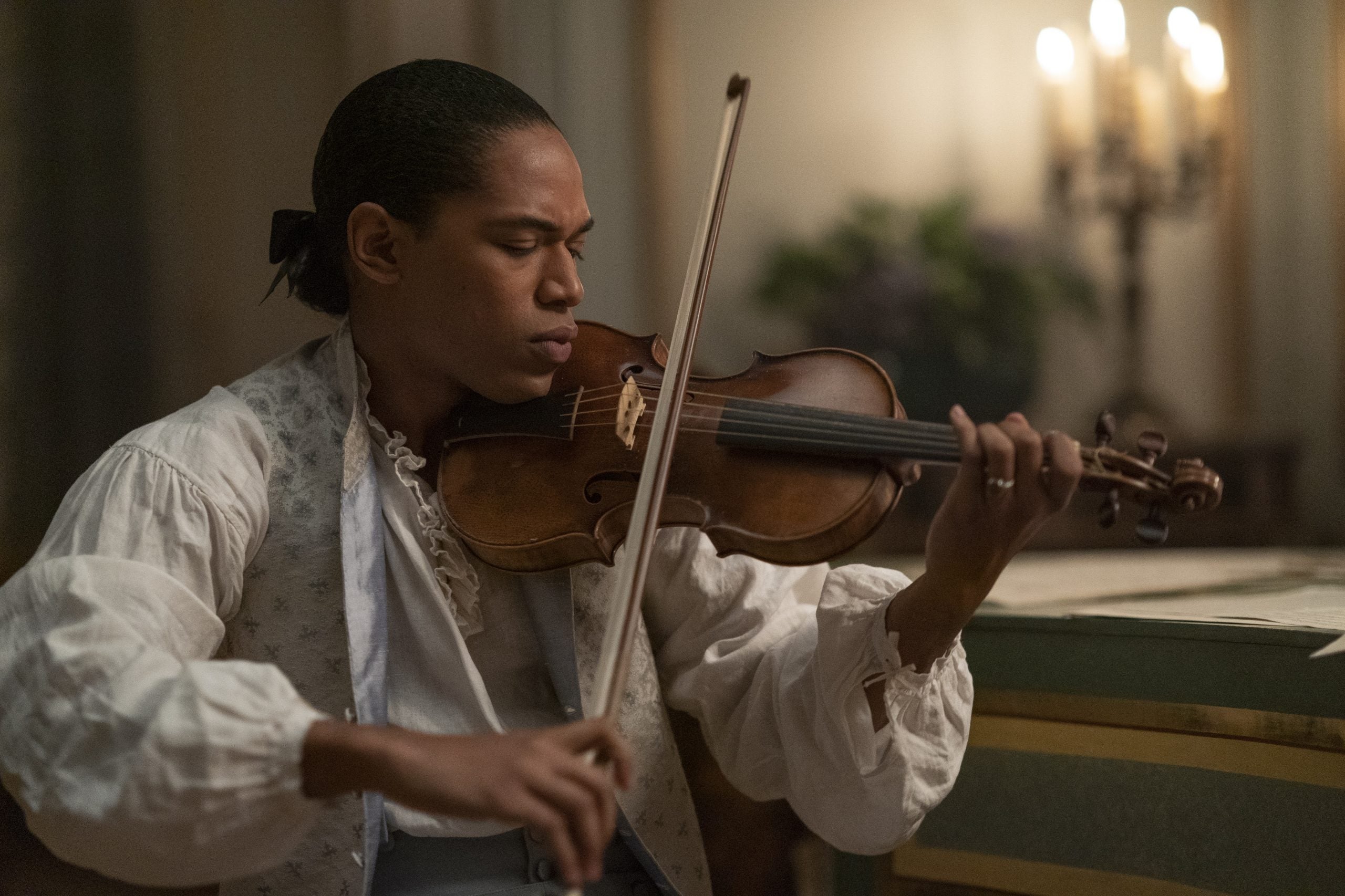
Do you think a film like this could open the door for Hollywood and filmmakers to take on more historical dramatizations of stories of Black figures that forces have worked to keep out of the public consciousness?
The cool thing about this process has been opening your eyes like, “Oh my gosh, there must be so many people out there in the world who have been either forgotten, erased or marginalized, suppressed, what have you.” And I am 100% positive that there are all kinds of people, whether it be their race, gender, sexuality, nationality, or religion, who haven’t been celebrated the way that they should because of those things. So I can’t wait for more people to start unearthing these figures and see their movies too.
Chevalier opens in theaters everywhere April 21, 2023.